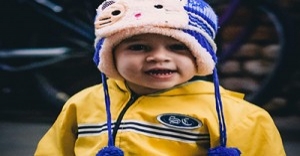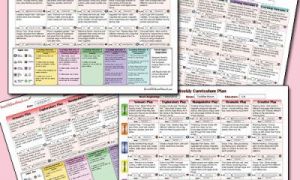

A literacy-rich environment is one that gives children numerous opportunities to engage in emergent literacy experiences in a meaningful and authentic way. The following provides a list of literacy activities for children that can be incorporated into an emerging literacy environment.
In fine motor skills, children develop their fine motor skills when they use their smaller muscles in the hands, fingers, and wrists. Children, who cannot express what they feel and think and how they view their world in words, may be able to do so more readily through art. STEM learning is important for children as it caters to critical thinking and problem-solving attitude. The following provides a list of fine motor, art and science activities for children that can be incorporated into the learning environment.
Numeracy encompasses a much wider notion than numbers – it can be understood as the suite of knowledge, skills, behaviours and dispositions that students need in order to use mathematics in a wide range of situations. The following provides a list of numeracy activities for children that can be incorporated into an emerging numeracy environment.
Young children today are growing up in digital contexts which range from devices like computers, tablets, smart televisions and smart watches to the internet and apps for recreation, learning and connection. iPads are among those devices which not only make for fun learning experiences but complement intentional learning in important ways. The following provides the benefits and experience ideas on using Ipads for children.
Sharing is challenging for children, especially toddlers. This happens frequently during the development process. The first step in teaching children to share is realising and accepting this. The following article provides information on the Benefits Of Learning To Share, Social Development In Babies and Toddlers, How To Encourage Sharing and more.
Time and again, meaningful friendships have been linked to positive life outcomes. However, in early childhood, peer connections become even more important since it is while playing with each other that the most joyful learning happens. The following article provides information on early childhood friendships, their benefits and how educators can support children to develop and maintain them.
Playing with puzzles has a significant impact on a child's physical skills, developing fine motor skills through the coordination of small muscles. Children who have developed fine motor skills tend to find it easier to write, draw and learn to play instruments. The following article provides information on the benefits of puzzles for children.
Learning how to keep one’s own self safe and protected is a key aspect of growing up. Even young children can be taught about personal safety with the help of appropriate language and interactive strategies. The following article provides strategies for Educators to talk about personal safety with children.
The Opposites Posters enable children to learn the concept of opposites. Opposites are pairs of words that directly contrast each other or are opposites. These posters have colour images to help children grasp this concept. These are great to display within the learning environment.
Early childhood is a busy time – there are so many new objects to look at and touch, sensations to experience and activities to explore. Not surprisingly then, it is common for children to occasionally have trouble paying attention. However, adding a sensory component or enhancing the existing sensory features of an activity can help promote attention and engagement. The following article provides strategies and activity ideas for auditory, visual, tactile, oral, and movement sensory stimulation.
 As an Educator in Australia, your pay rate falls under the Children’s Services Award 2010. This award states the minimum amount that an employer can… Read More
As an Educator in Australia, your pay rate falls under the Children’s Services Award 2010. This award states the minimum amount that an employer can… Read More
 When working as a qualified Early Childhood Teacher (with a university degree) within a service, your rate of pay will come from the Educational Services… Read More
When working as a qualified Early Childhood Teacher (with a university degree) within a service, your rate of pay will come from the Educational Services… Read More
 When working as a Diploma Qualified Educator your pay rate is from the Children's Services Award 2010. This Award states your minimum rate of pay… Read More
When working as a Diploma Qualified Educator your pay rate is from the Children's Services Award 2010. This Award states your minimum rate of pay… Read More
 When working as a Cert 3 Qualified Educator, your pay rate is from the Children's Services Award 2010. This Award states your minimum rate of… Read More
When working as a Cert 3 Qualified Educator, your pay rate is from the Children's Services Award 2010. This Award states your minimum rate of… Read More
 Educational Leaders play a crucial role in their early childhood service by ensuring that the educational program aligns with best practices and supports the holistic… Read More
Educational Leaders play a crucial role in their early childhood service by ensuring that the educational program aligns with best practices and supports the holistic… Read More
 In early childhood education and care, ratios are more than a technicality—they are a frontline safeguard. Every child deserves responsive supervision, emotional connection, and developmental… Read More
In early childhood education and care, ratios are more than a technicality—they are a frontline safeguard. Every child deserves responsive supervision, emotional connection, and developmental… Read More
 With the new national child safety reforms kicking in on 1 September 2025, early childhood services like yours have a real opportunity to lead the… Read More
With the new national child safety reforms kicking in on 1 September 2025, early childhood services like yours have a real opportunity to lead the… Read More
 Here’s a comprehensive Mobile Phone and Smart Watch Policy tailored for early childhood education and care (ECEC) services in Australia, aligned with the latest 2025… Read More
Here’s a comprehensive Mobile Phone and Smart Watch Policy tailored for early childhood education and care (ECEC) services in Australia, aligned with the latest 2025… Read More
 The Sea of Fish Challenge is a national initiative that invites children, educators, families, and communities to create and display fish artworks as a symbol… Read More
The Sea of Fish Challenge is a national initiative that invites children, educators, families, and communities to create and display fish artworks as a symbol… Read More
 Cold weather play is incredibly beneficial for early childhood development! It helps children build resilience, strengthen their immune systems, and develop essential motor skills. Here’s… Read More
Cold weather play is incredibly beneficial for early childhood development! It helps children build resilience, strengthen their immune systems, and develop essential motor skills. Here’s… Read More

The Early Years Learning Framework describes the curriculum as “all the interactions, experiences, activities, routines...
See more...
A: A photo observation in early childhood education is a visual documentation method used to capture...
See more...
Early childhood is a time of testing all sorts of boundaries. As young children gain...
See more...© 2009-2025 Aussie Childcare Network Pty Ltd. All Rights Reserved.

